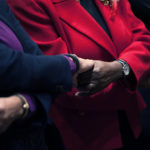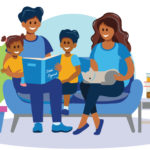Widespread recognition of Juneteenth carries the hope of change
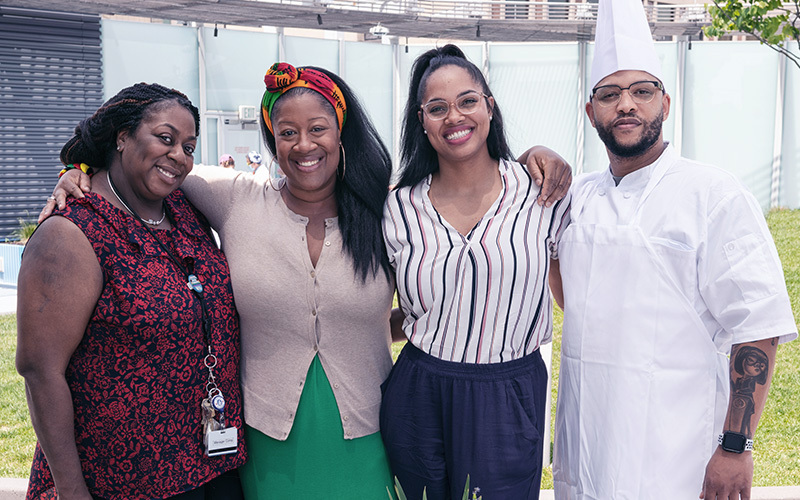
For African American and Black employees of Boston Children’s, the mainstream acceptance of Juneteenth is a promising step toward national healing.
It was only last year that June 19 — “Juneteenth” for short — became a federal holiday, giving all Americans an opportunity to reflect on the legacy of slavery, the civil rights movement, and race relations. For more than 150 years, many Americans did not know the significance of the day: It was initially a celebration of the end of slavery for African Americans in Galveston, Texas, who had remained enslaved for more than two years after President Lincoln’s signing of the Emancipation Proclamation in 1863.
Now, a brighter spotlight on the day means more people can observe this significant American history with time-honored Juneteenth traditions, including gatherings and celebrations that center on conversations with families, friends, and colleagues. With a day off from work, they can also reflect on the sacrifices and accomplishments of people who are Black and African American. Here, four Boston Children’s employees share their thoughts on what Juneteenth means to them.
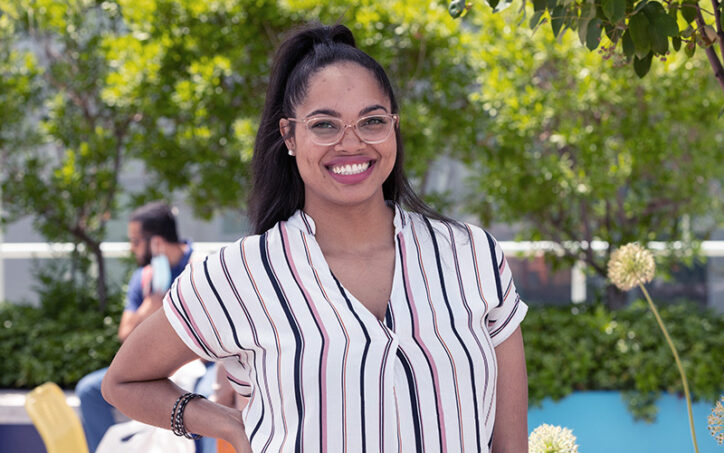
How do you feel about Juneteenth becoming a national holiday?
Malissa Williams, supervisor, Food Services:
I was born in the North but moved to Alabama to attend high school. The South recognizes Juneteenth more than people do up here. I became aware of it in the South. Still, I’m sometimes surprised when people don’t know what it means and why we’re celebrating it. And I was really surprised when it became a holiday last year.
Natarsha Fisher, senior program coordinator, Division of Hematology and Oncology:
I am going to start embracing Juneteenth. I like the fact that it’s being recognized nationally and companies are acknowledging it and giving employees a day off. I am Black…African American. To have a day that actually spotlights my culture is really important to me.
Alfred Julian, executive chef, Food Services:
It’s great. It shows the progress we’ve made and what we can achieve together. I was born and raised in Georgia, so coming from the South, it means a lot.
JeanNate Lowe, program coordinator, Division of Endocrinology:
While I’m happy to have July 4th off from work, it doesn’t resonate with me. On July 4, 1776, African Americans weren’t free. They couldn’t enjoy the country’s independence. So that’s why Juneteenth is my Fourth of July.
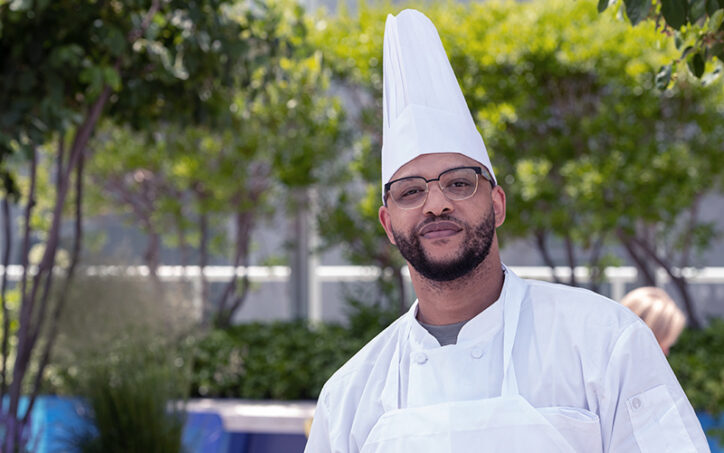
Do you see the recognition of Juneteenth as an opportunity?
Malissa:
This is a chance for people to understand what Juneteenth celebrates: our freedom from enslavement. That means a lot. It’s a step forward. We do have a long way to go in our progression, but it’s a step forward.
Natarsha:
People sometimes don’t like to talk about the past, or some act like it doesn’t matter. But when we bring it into better light and make people more comfortable to talk about it, then conversations will be had and things will get better. Juneteenth is a confirmation of our history, so greater recognition will shape a new way, a new look on life. What I will try to think about that day is how even though my ancestors got us into a place of freedom, we still weren’t free. There were, and still are, injustices. And that’s despite African Americans being significant contributors to the culture and fabric of our country.
Alfred:
It’s an opportunity for African Americans to learn about their history and know they come from a strong civilization. When slaves were free, a majority of them didn’t know they were free. A lot of them continued to work on plantations even though they were free.
JeanNate:
I do. One of the biggest inspirations for me is the National Museum of African American History and Culture in Washington, D.C. People of all races, colors, and creeds can go there and learn more about the African American experience. I’ve been three times, but I will go back every chance I get, because it’s just that good. It starts with slavery, which is the first point of existence for African Americans in America. Then it moves into different periods as you move upwards in the building: right up to the Civil Rights Movement and modern times. You could spend a whole day there.
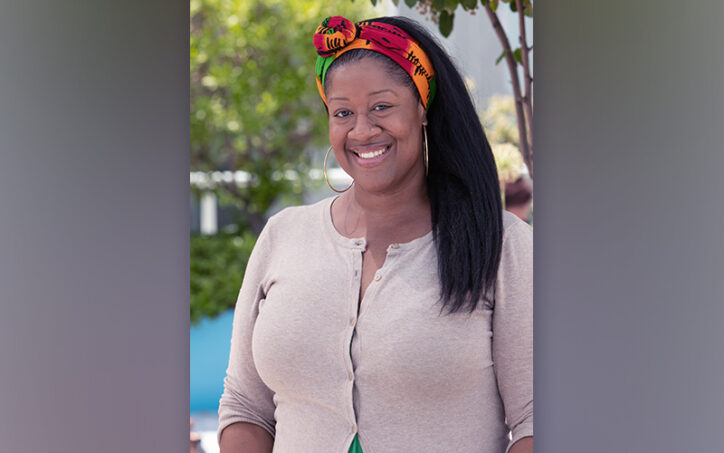
What can people do on Juneteenth, or any other day, to make a difference?
Malissa:
Some people feel we’re moving backwards; some think we’re moving forward. I think we’re in a standstill. So, what can someone do? They can just come out and celebrate. Recognize the movement. Knowledge is power. If you don’t ask, you won’t know Black history.
JeanNate:
The first thing people can do is realize education is empowering. But also, in your daily life, just make it a point to recognize racial injustices. If you’re in a position to say something or do something, or be an ally — you can make an effective contribution. No one person is going to change everything alone. But you’re doing your part by being an ally, standing up when you see things aren’t right.
Natarsha:
You just have to put yourself out there. I’ve learned that over the past year. Even volunteering is putting yourself out there. Saying “yes” and being open to hearing other people’s points of view — that makes the world a better place.
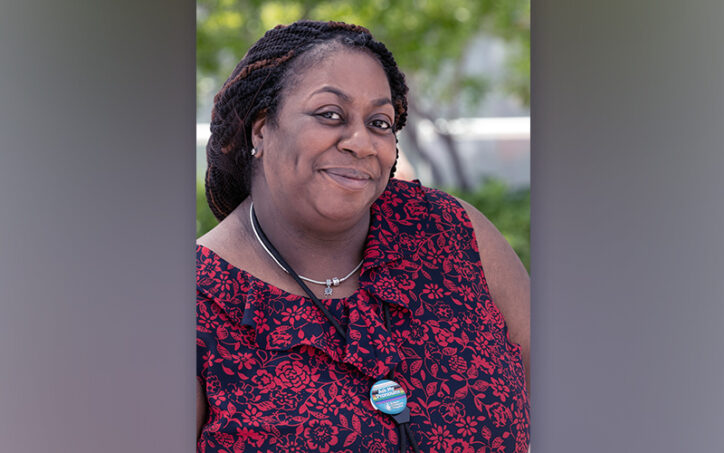
How will you celebrate Juneteenth?
Malissa:
On the Saturday before every Juneteenth, there’s a big cookout at Franklin Park in Boston. I hope to get there and visit people I know. It’s a big deal; people start arriving at 5 a.m. and rope off their sections. There’s dancing, and you can eat just about everything: deep-fried turkeys, chicken, traditional hamburgers and hot dogs, potato salad, watermelon, fried fish. I also have a big breakfast at my house with my three grown sons.
JeanNate:
I’ll probably go to Franklin Park and see what’s going on. There might also be some evening events elsewhere. It’s a big weekend in Boston.
Alfred:
I’ll be working over the weekend, but at the Boston Children’s cafeteria, we’ll be celebrating Juneteenth by cooking a lot of Southern foods: collard greens, Southern fried chicken, macaroni and cheese, yams — you can’t celebrate without yams — cornbread, and fried fish.
Natarsha:
I am going to tell my younger niece about the holiday and educate her on the things my older family members talk about. And I’ll continue to educate myself, because I don’t know it all. The more I learn, the more I can tell others.
Learn more about initiatives in health equity, diversity, and inclusion at Boston Children’s
Related Posts :
-

What Martin Luther King, Jr. taught us about leadership
Among the individuals who have helped shape American history, the Reverend Dr. Martin Luther King, Jr. stands out. As one ...
-

A Juneteenth celebration of children’s books featuring Black characters
Books can provide a mirror for kids to understand themselves and a window into the world around them. Yet for ...
-

Contributing to every level of care: Our Asian American and Pacific Islander community
People come to Boston Children’s Hospital to receive care from some of the best clinicians in the world. Yet ...
-

Dr. Dennis Spencer: The world needs more diverse doctors
If you ask Dr. Dennis Spencer, he’ll tell you one of the best things about practicing medicine is the ...


